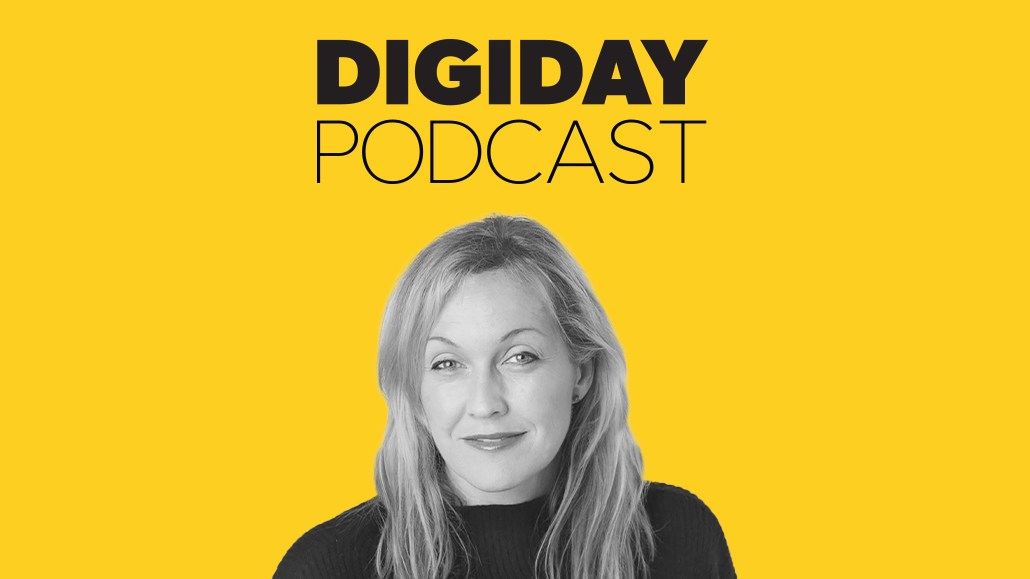Secure your place at the Digiday Media Buying Summit in Nashville, March 2-4
Hearst Magazines’ Lisa Howard says advertiser requests for 2024 are on the upswing

Subscribe: Apple Podcasts • Spotify
Plenty can change in a year, particularly in the publishing industry. A year after the media business slipped into a downturn, the upswing seems to have started, at least for Hearst Magazines.
“We’re actually seeing more [requests for proposals from advertisers] for 2024 than we had seen at this time last year,” Hearst Magazines evp and global chief revenue officer Lisa Howard said on the latest Digiday Podcast episode.
In another positive sign, the publisher is also seeing more interest in upper-funnel, brand awareness options for advertisers after a year-plus of brands prioritizing lower-funnel, performance-oriented tactics. “I am hearing from brands that they, in some cases, do feel like they over-rotated to that lower-funnel, more just juicing sales strategy because everybody was — we were all fearful of a recession,” said Howard.
For its part, Hearst Magazines made a similar shift toward lower-funnel, performance-oriented sales. After Howard joined Hearst from The New York Times in October 2022, the publisher decided to cut back on “big, complex, long-lead content programs” in favor of a “maniacal focus … on digital media that works and can work quickly for our advertisers,” she said. While Hearst has continued to sell those long-lead content campaigns, it has seen fewer requests from advertisers for those opportunities compared to standard ad buys with shorter lead and flight times.
That’s not to say that Hearst Magazines is pulling the plug on the big content deals, such as a program sponsored by Cartier for Harper’s Bazaar that launched this month and plans for an upcoming franchise tied to Women’s Health and timed to next year’s Olympic Games. Those deals are “not our primary focus, but where the need calls for it, we’re building programs,” said Howard.
Here are a few highlights from the conversation, which have been edited for length and clarity.
The pivot to short-term pitches
I think [advertiser demand for long-lead content programs] dipped in 2023, for sure. We did not have as many of those requests coming in. It was really all about flexibility, shorter lead times, shorter flights. And we navigated towards that. Even for our content programs that we deliver for clients, we pivoted and created more templated structures so that we could operated more quickly on behalf of our clients.
The return of advertisers’ long-term planning
We are starting to see a little bit of opening up on longer-term planning for 2024 specifically. That’s exciting because there’s some big, impactful programs with lots of extensions that we can execute against for partners.
The recovery of the ad market
The U.S. really got caught up in this whole recession fear moment, and that has obviously hurt everyone in the ad business. So it’s been tough overall this year. We’re still waiting on Q4. I look every day at how many RFPs are flowing in and how many proactive proposals we have. In our business right now, activity is up. RFPs are not fully back yet for Q4. That said, there are some [positive] signs. 2024 is my bet if we’re talking about a real recovery in the ad market overall.
Reorganizing sales around advertiser verticals
What we really wanted to do was to simplify, and this allowed us to say, “You know what, advertiser? You have one team working on your behalf who understands your industry and can craft solutions that we know have worked in other cases for other companies in that industry and do it with one team that doesn’t change.”
More in Media

From feeds to streets: How mega influencer Haley Baylee is diversifying beyond platform algorithms
Kalil is partnering with LinkNYC to take her social media content into the real world and the streets of NYC.

‘A brand trip’: How the creator economy showed up at this year’s Super Bowl
Super Bowl 2026 had more on-the-ground brand activations and creator participation than ever, showcasing how it’s become a massive IRL moment for the creator economy.

Media Briefing: Turning scraped content into paid assets — Amazon and Microsoft build AI marketplaces
Amazon plans an AI content marketplace to join Microsoft’s efforts and pay publishers — but it relies on AI com stop scraping for free.








